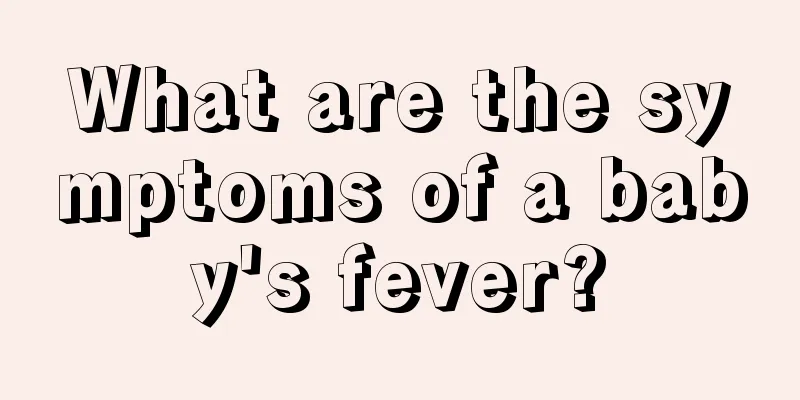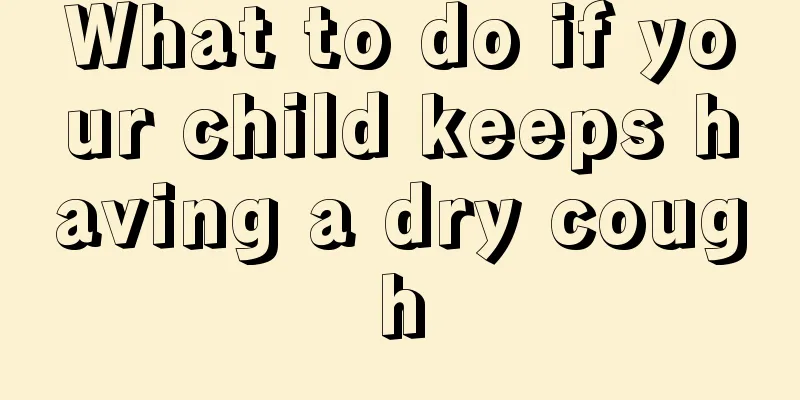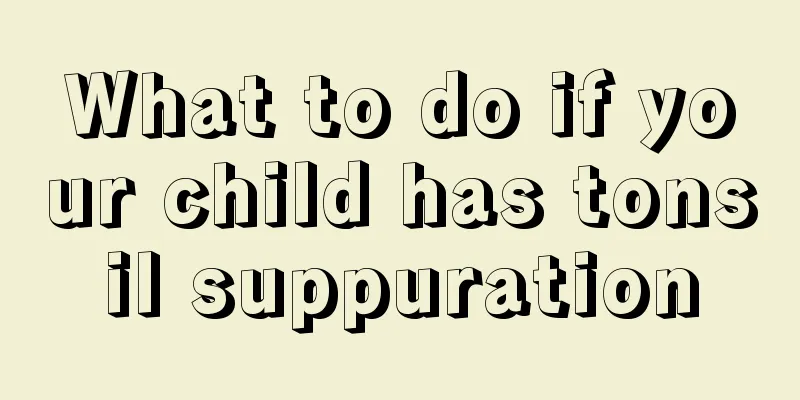What are the symptoms of a baby's fever?

|
In life, we know that taking care of a baby is a very difficult task, especially taking care of a younger baby. Once the baby has some problems with his body and he will not express them, parents need to observe carefully. Among them, baby fever is a relatively common phenomenon. Failure to adjust in time will have a certain impact on the baby's health, and long-term fever will also lead to other diseases. Therefore, parents must pay great attention to it. Let's take a look at the symptoms of baby fever below. Symptoms of fever in babies Body temperature itself is not the real most critical method to observe childhood illness. For adults, the level of body temperature usually reflects the severity of the illness. This is not the case with children, as their bodies' temperature control is not yet perfect. Some children have a fever of up to 40°C when they are infected with mild diseases, but only 38.3°C when they are infected with more serious diseases. When a child has a fever, parents should observe his complexion, expression and actions. A child with a temperature of 100.5°C but a pale, unnaturally quiet complexion may be sicker than a child with a temperature of 100.5°C but still running around the house making a fuss. If a child with a fever shows the following symptoms, see a doctor regardless of the temperature. 1. He keeps crying and it is useless no matter who comforts him. 2. It is difficult to wake up. 3. If someone tries to touch or move the child, he will cry. 4. The neck is stiff and inflexible. 5. Uncontrollable twitching or spasms in the arms, thighs, or other parts of the body. 6. Confusion and strange behavior (seeing or hearing things that are not there, saying strange things or behaving abnormally). 7. There are noises when breathing. 8. Unable to swallow any food and drooling constantly. 9. Purple spots appear on the skin. 10. Skin color is grayish white or dark blue. 11. The pulse is weak but fast and rapid (a child under 1 year old has a pulse of more than 160 beats per minute; a child over 1 year old has a pulse of more than 120 beats per minute). 12. Burning or pain when urinating. 13. There is blood in the stool during diarrhea. The above is an introduction to the symptoms of a baby's fever. I hope it will be helpful to many parents after understanding it. Generally, babies will cry when they have a fever, and you should observe the child's mental state more often. If necessary, take the baby to the hospital for examination and treatment in time. |
<<: What to do if your baby spits up milk from his nose
>>: What is the standard for weight gain in premature babies?
Recommend
How to treat oral ulcers in infants and young children?
The bodies of infants and young children are very...
Why is my baby drooling so much?
It is a common physiological phenomenon for babie...
How many times a day is normal for a full-month baby to defecate
There are many aspects that require attention for...
What are the symptoms of stomach cold in children
Stomach cold is a type of stomach disease. Genera...
What are the methods of making egg custard for baby food
It is very important to add complementary foods t...
What should I do if my baby has green loose stools with foam?
A baby is the hope of the family, the apple of th...
Why is my baby shivering all the time?
Many mothers will find that for some unknown reas...
White discharge from nose
The mucus that runs through the nose during a col...
The harm of picky eating in children
Each type of food has its own irreplaceable nutri...
There are some tips for babies to stay in bed
As the weather gets colder, it becomes more diffi...
What are the dangers of anemia in three-month-old babies?
Speaking of the word anemia, I believe everyone i...
What causes children to cough when they wake up in the morning?
In fact, the cough in children when they wake up ...
What are the screening criteria for childhood leukemia?
According to incomplete survey results, the numbe...
What happens if a child has multiple swollen lymph nodes in the abdominal cavity?
Lymph nodes are organs distributed throughout the...
What should I do if my 7-year-old child has fecal incontinence?
Fecal incontinence is a very troublesome situatio...









